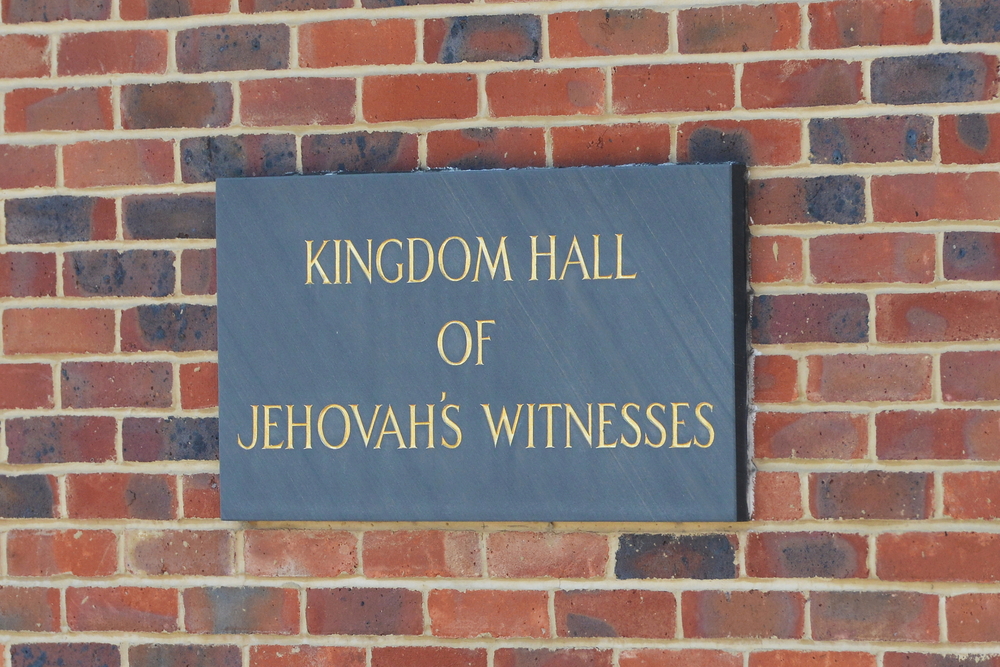Jehovah’s Witnesses is a Christian denomination that originated in the late 19th century in the United States. With a global membership of over 8 million individuals, Jehovah’s Witnesses are known for their distinct beliefs and practices.
They consider the Bible as the inspired word of God and prioritize its study and application in their lives. Rejecting the doctrine of the Trinity, they believe in the existence of Jehovah as the only true God and see Jesus Christ as His Son, separate and subordinate to Him.
They anticipate the establishment of God’s kingdom on Earth, which they believe will bring about a paradise-like condition. Door-to-door evangelism is a prominent aspect of their faith, as they actively share their beliefs and message of God’s kingdom with others.
Jehovah’s Witness Facts
1. Jehovah’s Witnesses is a Christian denomination with origins in the United States in the late 19th century
Jehovah’s Witnesses originated in the late 19th century in the United States. Charles Taze Russell, a prominent Bible student, began organizing Bible study groups and formed the Watch Tower Society in 1881.
Also Read: Facts About Hinduism
The movement gained momentum with the publication of Russell’s books and the establishment of The Watchtower magazine.
2. They believe in the Bible as the inspired and infallible word of God, and they follow its teachings closely
The Bible holds a central position in the beliefs and practices of Jehovah’s Witnesses. They believe that it is the inspired word of God and view it as the ultimate authority on all matters of faith and conduct.
They place great emphasis on studying and understanding the Bible, using their own translation, the New World Translation, which was completed in 1961.
3. Jehovah’s Witnesses believe in the existence of Jehovah as the only true God and reject the doctrine of the Trinity
Jehovah’s Witnesses believe in the existence of Jehovah as the only true God. They reject the doctrine of the Trinity, considering it to be a deviation from biblical teachings.
Also Read: Judaism Facts
According to their beliefs, Jesus Christ is the Son of God, separate from God but subordinate to Him. They believe that Jesus’ death and resurrection provide the opportunity for salvation and eternal life.

4. They emphasize the importance of personal Bible study and hold regular meetings at Kingdom Halls
Jehovah’s Witnesses place a strong emphasis on personal Bible study as a means of deepening their understanding of God’s teachings. They believe that each individual has a responsibility to study the Bible and apply its principles in their daily lives.
They encourage their members to engage in regular personal Bible reading and reflection, using study aids and publications provided by the organization to enhance their comprehension.
In addition to personal study, Jehovah’s Witnesses gather for regular meetings at their places of worship known as Kingdom Halls. These meetings are designed to foster spiritual growth, mutual encouragement, and education.
5. Jehovah’s Witnesses believe in the imminent establishment of God’s kingdom on Earth
Jehovah’s Witnesses anticipate the establishment of God’s kingdom on Earth. They believe that this kingdom, also referred to as the “Millennial Reign,” will bring about significant changes in society, ultimately transforming the Earth into a paradise.
They believe that the 144,000 mentioned in the book of Revelation will be chosen to rule in heaven with Christ, while the “great crowd” of faithful individuals will experience everlasting life on Earth. This hope for the future motivates their evangelistic efforts and shapes their way of life.
6. They abstain from participating in political activities and military service
Jehovah’s Witnesses maintain a stance of political neutrality. They believe that their allegiance is solely to God’s kingdom, and therefore, they do not participate in political activities or align themselves with any political party or government.
They refrain from voting in elections, running for political office, or engaging in partisan debates. Their focus is on spiritual matters and promoting the teachings of the Bible rather than involving themselves in the politics of human governments.

7. Jehovah’s Witnesses place a strong emphasis on moral conduct and living a righteous life
Moral conduct is highly valued among Jehovah’s Witnesses. They adhere to a strict moral code based on their interpretation of biblical principles.
This code includes abstaining from behaviors considered immoral or unscriptural, such as smoking, gambling, drug abuse, and premarital or extramarital sexual relations. They view living a morally upright life as an essential aspect of demonstrating their dedication to God.
8. They do not celebrate holidays and birthdays, considering them to have pagan or non-Christian origins
Jehovah’s Witnesses do not celebrate holidays or birthdays. They believe that many traditional celebrations have pagan or non-Christian origins and are therefore incompatible with their religious beliefs.
They do not observe holidays such as Christmas, Easter, Halloween, or national holidays. Instead, they focus on religious events such as the annual commemoration of Jesus’ death, known as the Memorial, which takes place on the date of the Jewish Passover.
9. Blood transfusions are generally rejected by Jehovah’s Witnesses
Blood transfusions are generally prohibited among Jehovah’s Witnesses. They interpret various biblical passages, particularly those that prohibit the consumption of blood, as a prohibition on accepting blood transfusions.
They believe that blood represents life, and it is a sacred gift from God that should not be used to sustain life through transfusions. However, they emphasize alternative medical treatments and procedures that do not involve the use of blood, and advancements in medical technology have allowed for more bloodless treatment options in recent years.
10. Disfellowshipping is a disciplinary measure used within the Jehovah’s Witness community
Disfellowshipping is a disciplinary action within the Jehovah’s Witness community. It is used when an individual is found to have committed serious sins or violated the congregation’s moral or doctrinal standards.
Disfellowshipping involves the removal of the individual from the congregation, and active members are instructed to avoid socializing or having any spiritual fellowship with the disfellowshipped person.
The goal of disfellowshipping is to promote repentance, maintain the spiritual purity of the congregation, and protect its members from negative influences.
Reinstatement is possible if the disfellowshipped individual demonstrates genuine repentance and meets specific criteria established by the congregation’s elders.
11. They do not participate in interfaith activities or ecumenical movements
Jehovah’s Witnesses do not actively participate in interfaith activities or ecumenical movements. They believe that true Christianity is exclusively represented by their own organization and view other religious groups as being part of “false religion.”
They refrain from engaging in collaborative worship or religious ceremonies with members of other faiths. Their belief is rooted in their interpretation of biblical teachings and their conviction that their understanding of the Scriptures is the only correct one.
12. Jehovah’s Witnesses have faced criticism and legal challenges in different countries due to their practices
The Watchtower Society serves as the central organization for Jehovah’s Witnesses. It is headquartered in Warwick, New York, and oversees the administrative and spiritual activities of Jehovah’s Witness congregations worldwide.
The society provides guidance and direction through publications, such as The Watchtower and Awake! magazines, which are distributed to members for study and reference. The society also organizes regional and international conventions, where Jehovah’s Witnesses gather to receive spiritual instruction and encouragement.
13. The Watchtower Society, headquartered in New York, serves as the central organization for Jehovah’s Witnesses
Jehovah’s Witnesses have encountered criticism and faced legal challenges in various countries. Some concerns have been raised regarding their rejection of blood transfusions, particularly in cases involving minors, where legal battles have emerged concerning the right to medical treatment.
Additionally, their policies and practices related to disfellowshipping have been subject to scrutiny, with critics arguing that shunning practices can have adverse psychological and social effects on individuals and families.
14. They have an active publishing program and distribute their literature, including magazines like “The Watchtower” and “Awake!”
Jehovah’s Witnesses have an extensive publishing program. They produce and distribute literature in multiple languages worldwide. Their publications cover a wide range of topics, including biblical interpretation, moral guidance, and religious education.
They are known for their diligent distribution of literature, often engaging in door-to-door evangelism to offer their publications and engage in discussions about their beliefs.
15. As of 2021, Jehovah’s Witnesses claim a worldwide membership of over 8 million people
Jehovah’s Witnesses claim a global membership of over 8 million individuals in more than 240 countries and territories. They are organized into congregations, which are typically smaller groups that meet regularly for worship, Bible study, and mutual support.
Congregations are overseen by appointed elders and ministerial servants who provide spiritual guidance and leadership within their respective communities.
In addition to local congregations, Jehovah’s Witnesses come together for larger gatherings, including regional conventions and the annual Memorial of Jesus’ death, which is observed by all congregations worldwide.
